 I’m a big fan of a very cool service: PikaPods.
I’m a big fan of a very cool service: PikaPods.
They allow you to run a wide variety of pre-configured, Dockerized apps. And I do mean a wide variety: development, collaboration, email, file-sharing, CRM, productivity, password management, dashboard, documentation, note-taking, and many more. You deposit a few bucks and then pick your apps and everything just works. You choose how much CPU, RAM, and storage you need.
At the moment, I’m running
- SerpBear – to watch LowEndBox- and LowEndTalk-related keywords
- Monica – a personal CRM
- Baserow – an Airtable-like database
In the past, I’ve also played with Joplin, MyIdlers, and others. Most of these apps are $1-2 per month to run.
The best way to get a flavor for the PikaPods experience is to walk through a couple examples. I’m going to show you Statsing-ng and Bookshelf.
Statping-ng
Statping-ng is “an open source server to monitor your web applications and all other HTTP, TCP, UDP, ICMP and gRPC services”. It provides a graphical display so you can gather and view historical data on the status of your services, and also configure alerts so you’re aware if anything goes down. If you’ve used a third-party monitoring solution, this is very similar…only something you own and it’s probably a ton cheaper as well.
To setup your own Statping-ng, start by selecting it in the PikaPods “Available Apps” catalog:
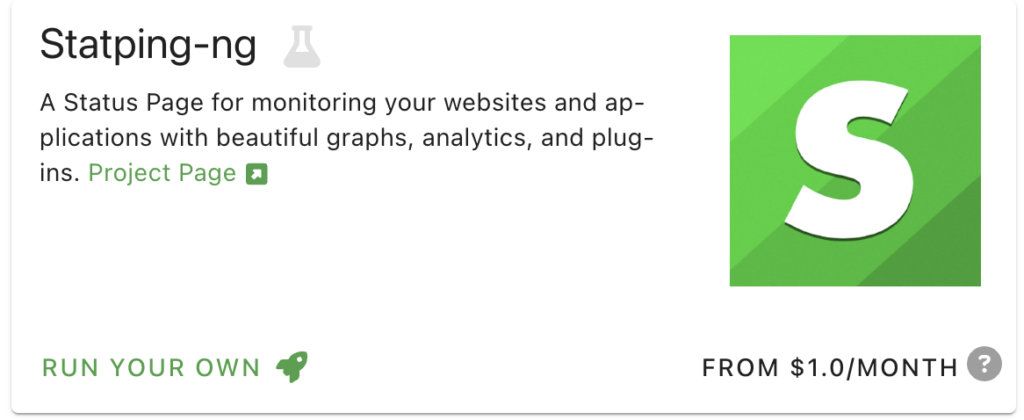
Click “Run Your Own”. You’ll walk through the config:
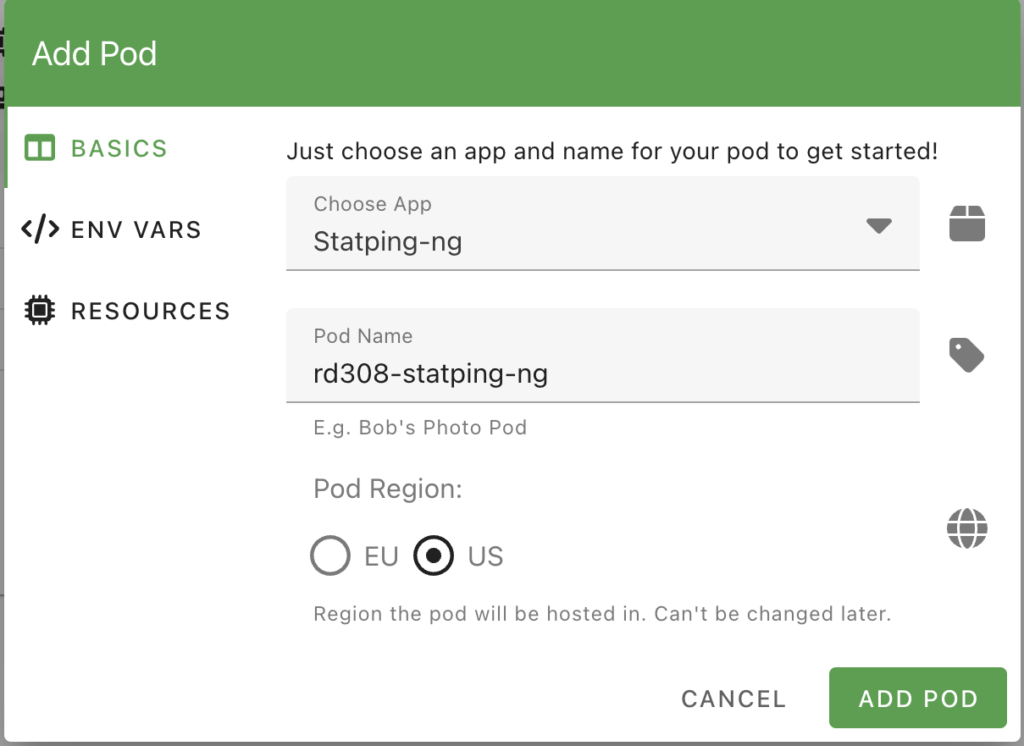
Note the Pod Region. It defaults to EU, so if you’re in North America, be sure to choose US. Now click on ENV VARS:
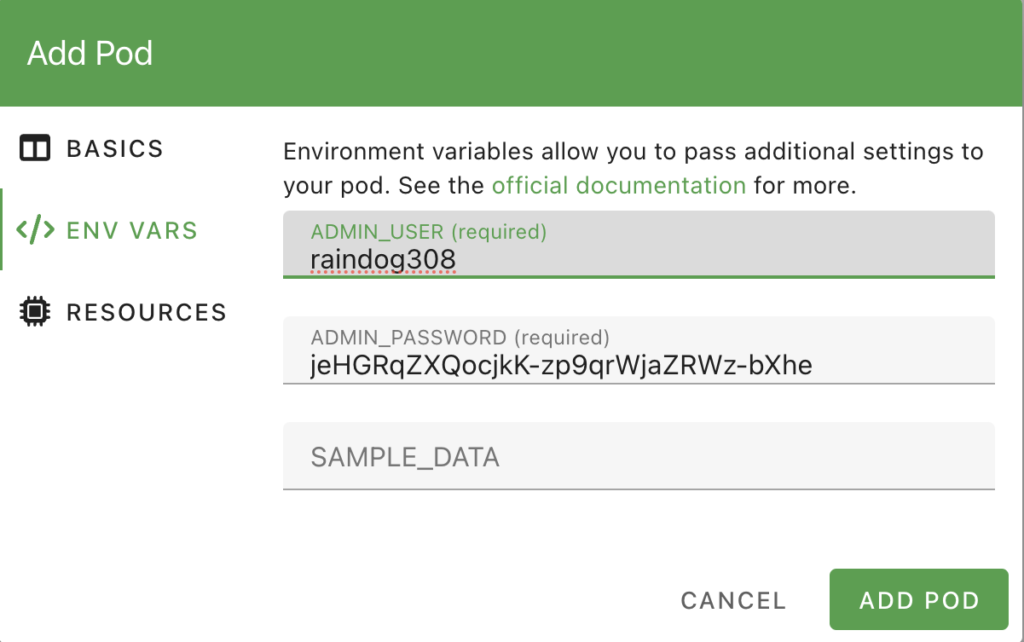
A lot of applications have configurations that are controlled via environment variables that are passed into the container. In this case, I specify the user name and password. (Sorry, hackers, this pod was deactivated prior to the publishing of this article!) Next we configure resources:
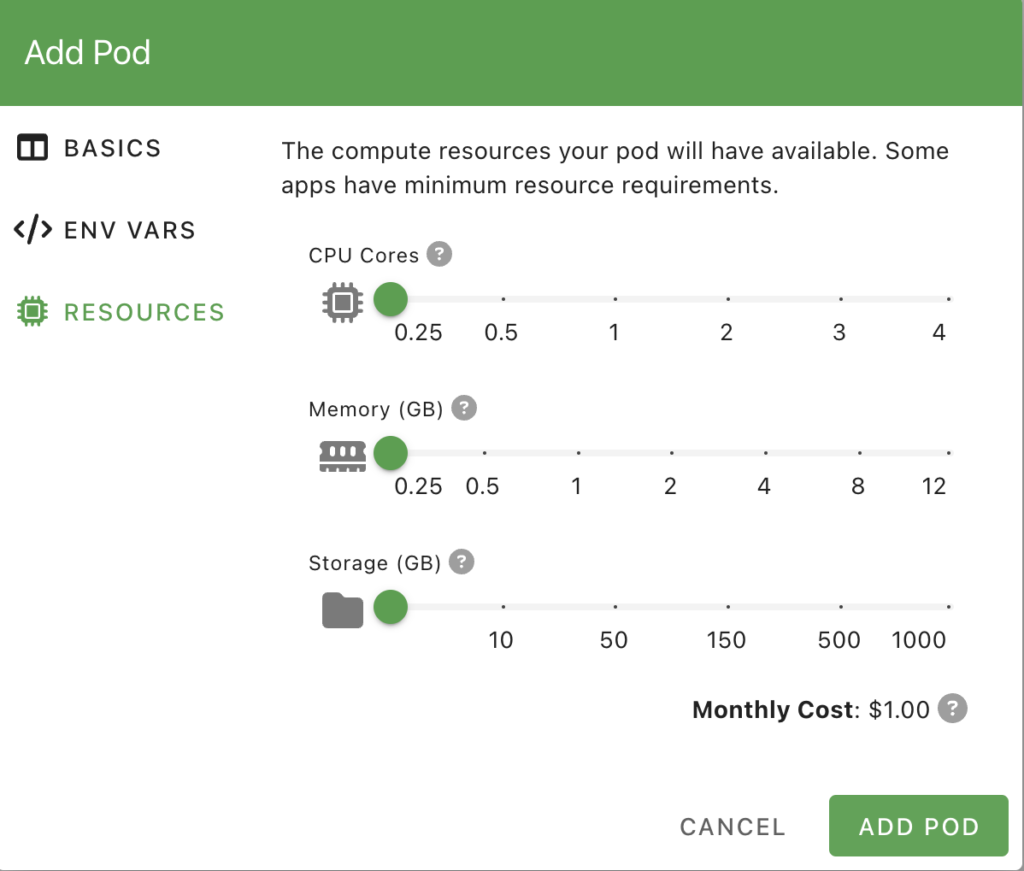
Since this is a demo, I’ll leave it at the minimums. Some apps do require more and of course if you have more users/more use, you’ll need to scale up. Most of these apps run with small resources because they’re containers and not full OS images, so you don’t need to size them the way you would a full VPS.
Click Add Pod:
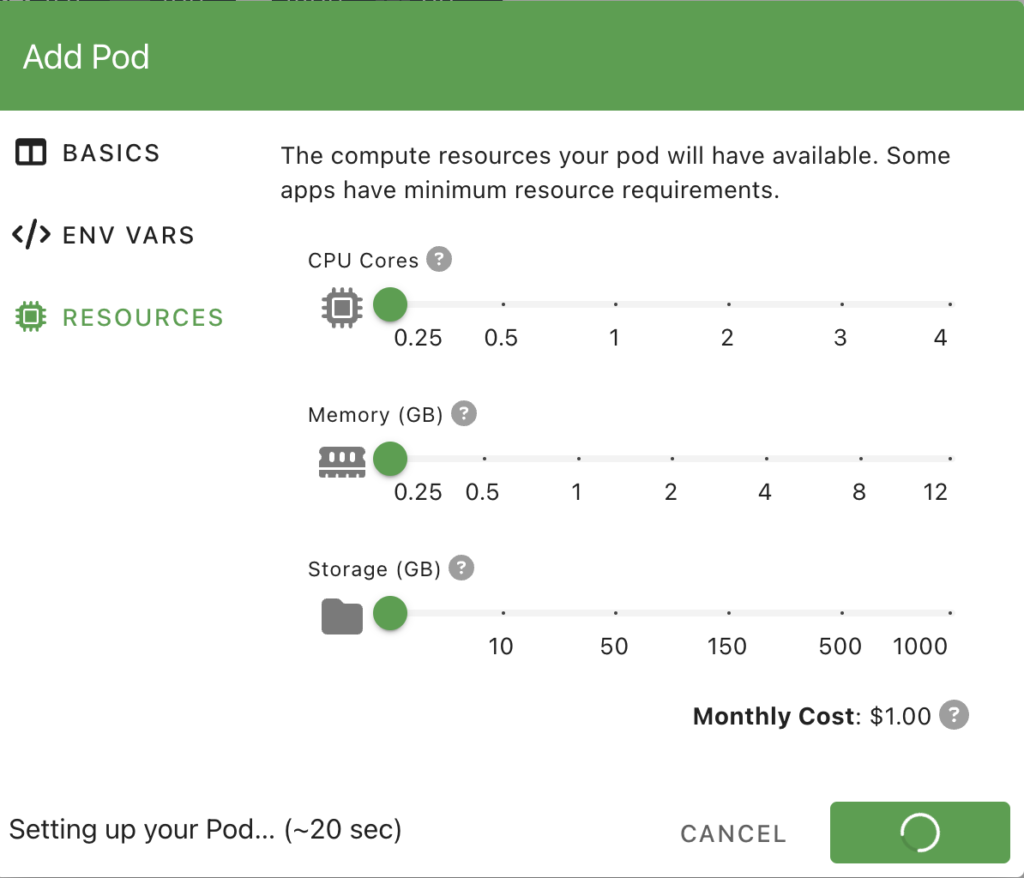
And yes, in less than 20 seconds, the Pod is up and running:
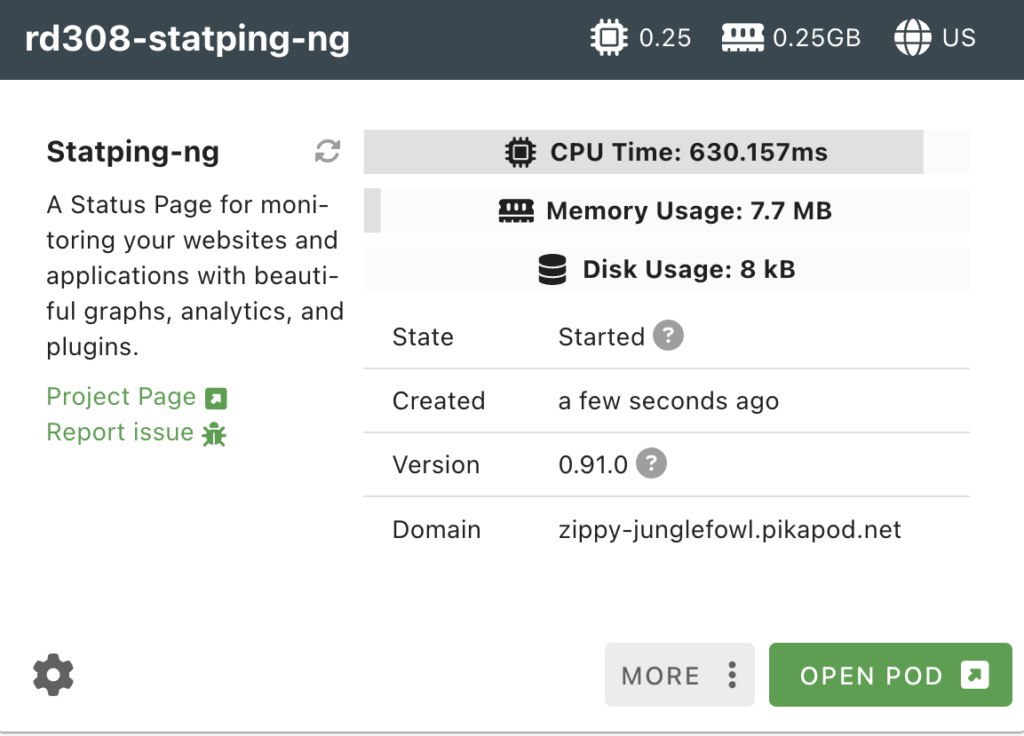
You’ll notice that URL, which is randomly generated. You can certainly use that to access your Pods, but what I do is create a DNS alias. In this case, monitor.lowend.party is a CNAME for zippy-junglefowl.pikapod.net. At Porkbun:
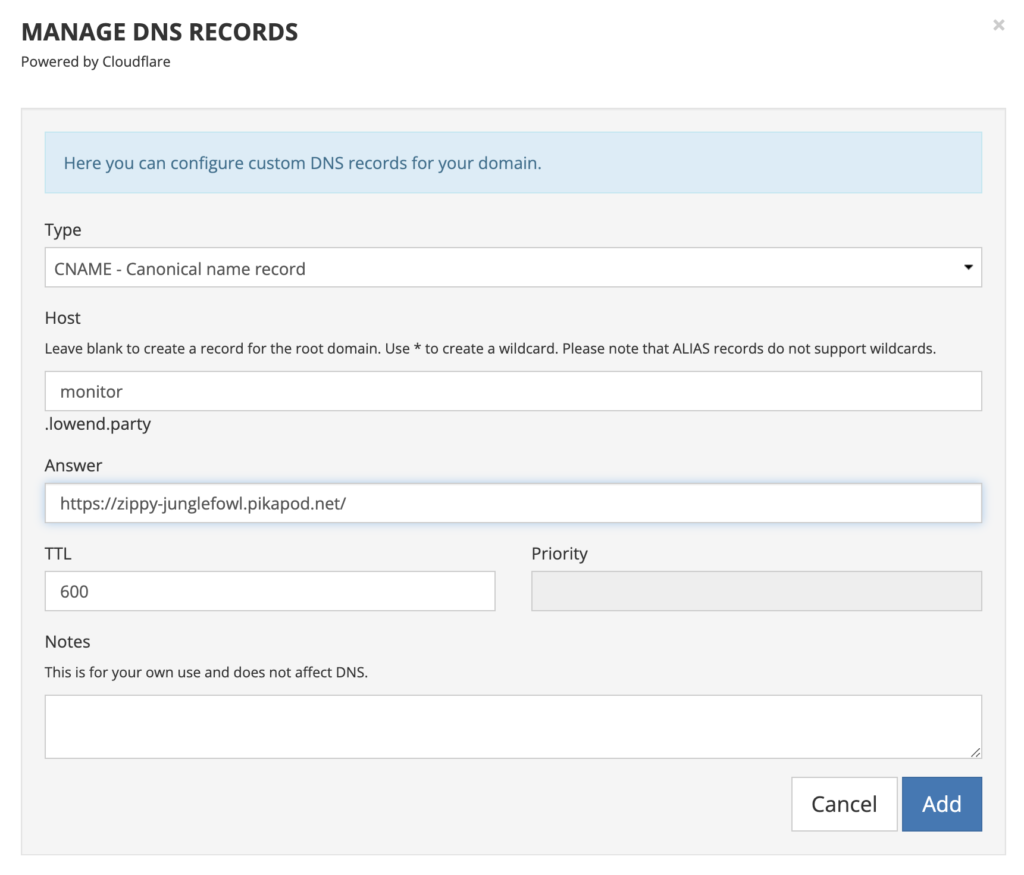
So how does it look? Awesome! I created a couple monitors for the LowEndEmpire:
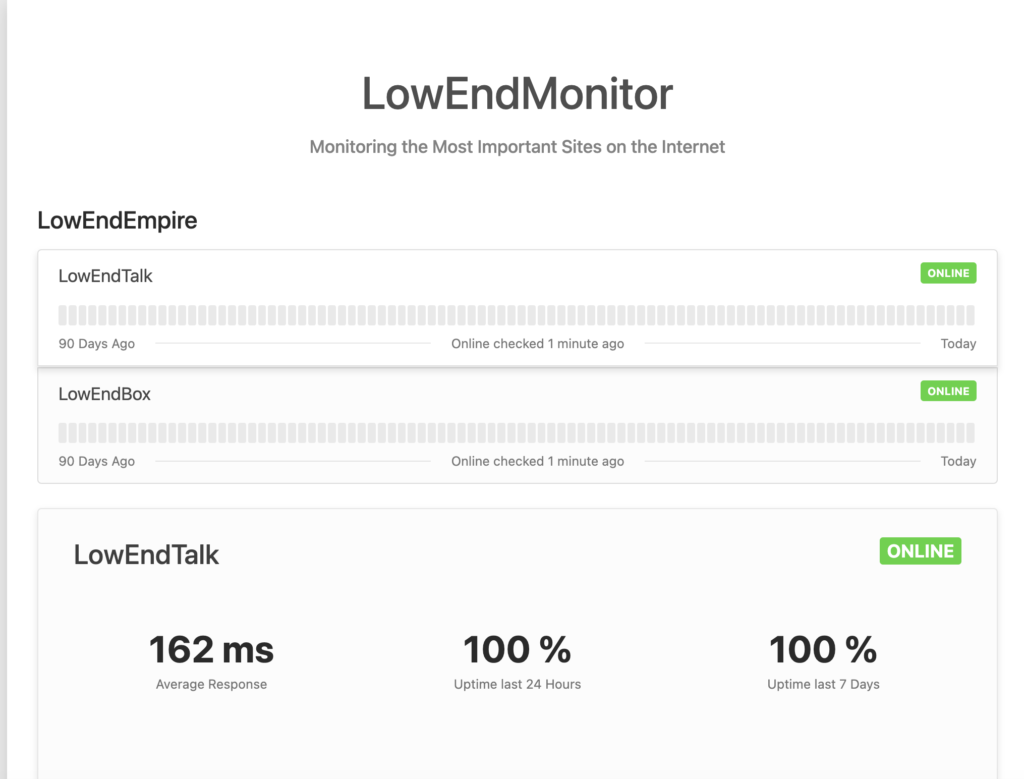
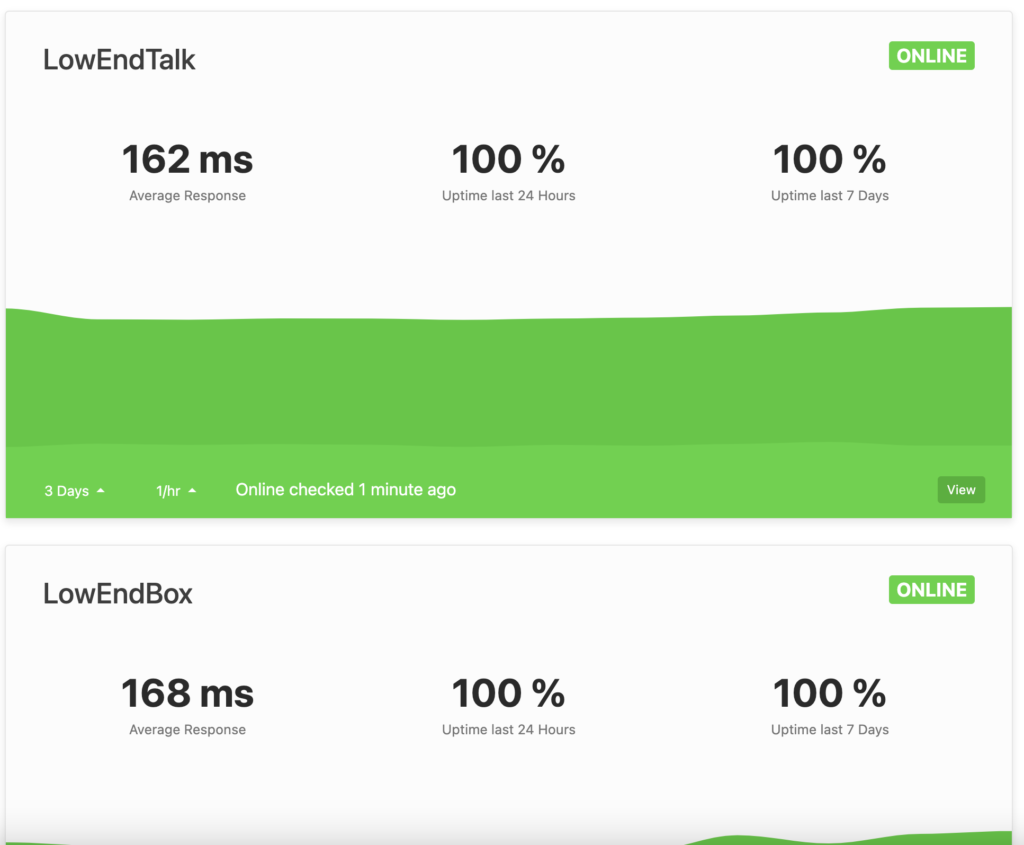
From start to finish, including the Porkbun DNS alias, this is maybe 10 minutes’ work. Most of that time was configuring Statping-ng.
Side Note: Backups
You may be wondering…how do I back this up? Very fair question. After all, if you put a lot of data and time into one of these Pods, you want to make sure that is protected against failures.
It’s pretty simple: you can enable SFTP access into the Pod, which allows you to grab anything you like. Some applications also offer direct DB access (if you enable it, off by default).
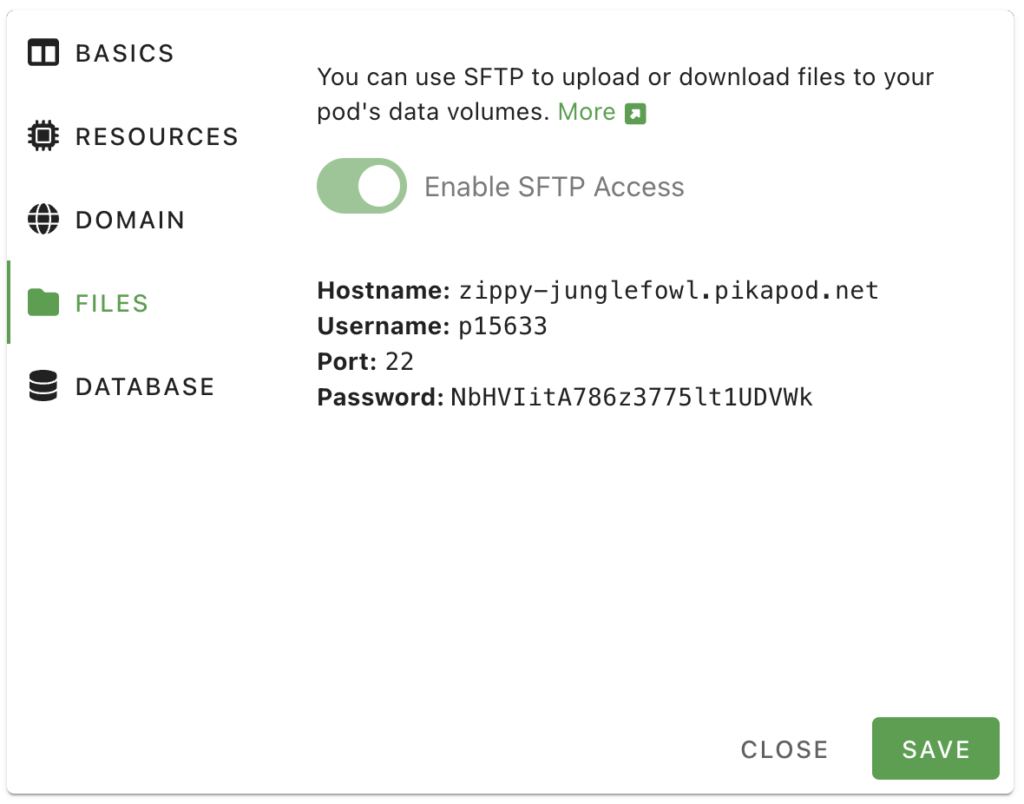
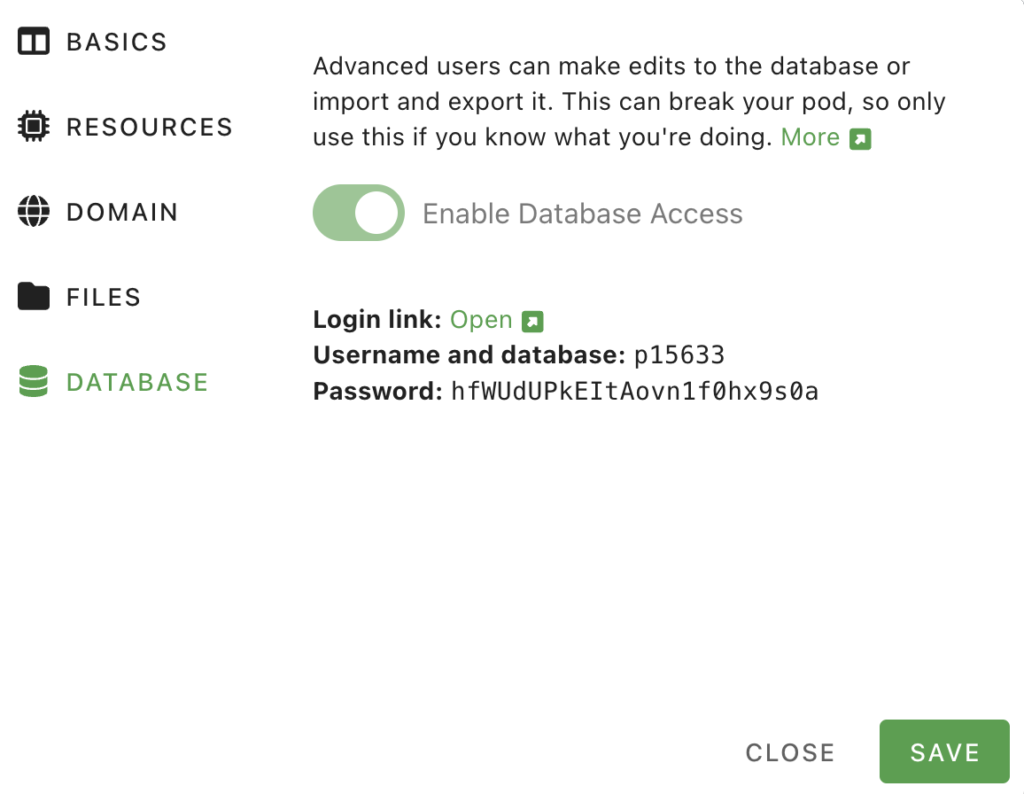
BookStack
Now let’s take a look at B0okStack, a “a simple, self-hosted, easy-to-use platform for organising and storing information.” It’s a web-based documentation system that uses a book/chapter/page metaphor. You can organize your information into reference “books”. See the app’s demo.
I’ve run into this app in many shops. Mature organizations document heavily to enable knowledge-sharing and avoid the “only Bob knows how to do that and he’s on vacation” problem. It also speeds onboarding new team members.
Bookstack supports collaboration, including groups and granular permissions usually only found in enterprise-grade products. You can write your docs in either a WYSIWYG or Markdown editor. Pretty neat app!
A PikaPod for Bookstack is only $1.90/month. Even after I cranked up resources a bit as I did below, it only came to $2.65/month and you could run a small team or a small repository of information with a lot less.
Let’s fire it up on PikaPods:
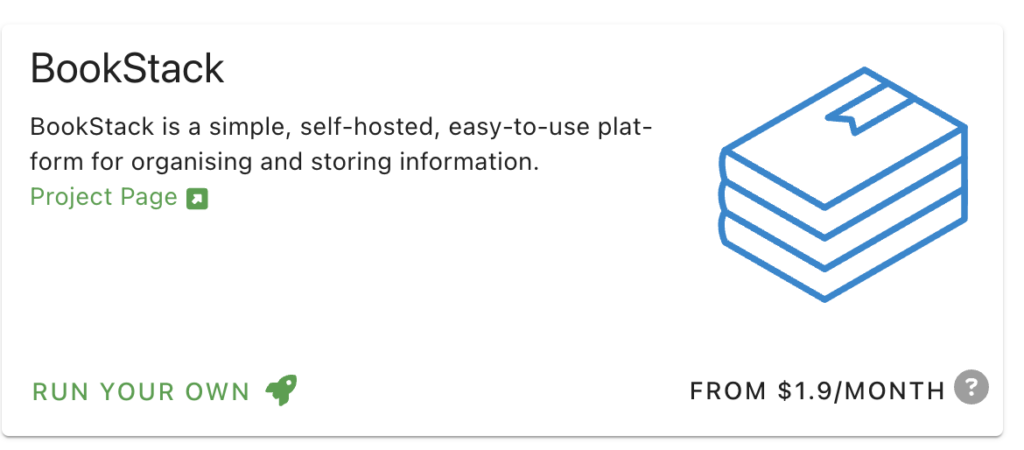
Adding the app works just like all the others:
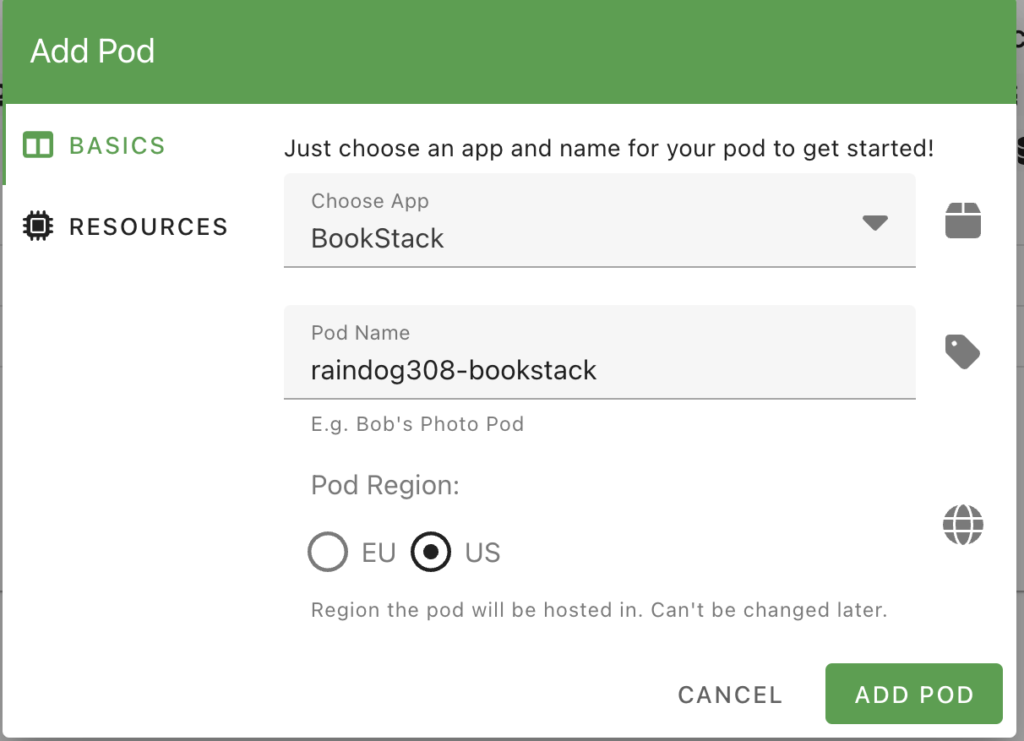
Here I’m going to dial up the resources a bit as an example. Note that 10GB is a ton of Bookstack pages. Try writing 10GB of Markdown files. It’ll take you quite a while! And the price is only $2.65/month.
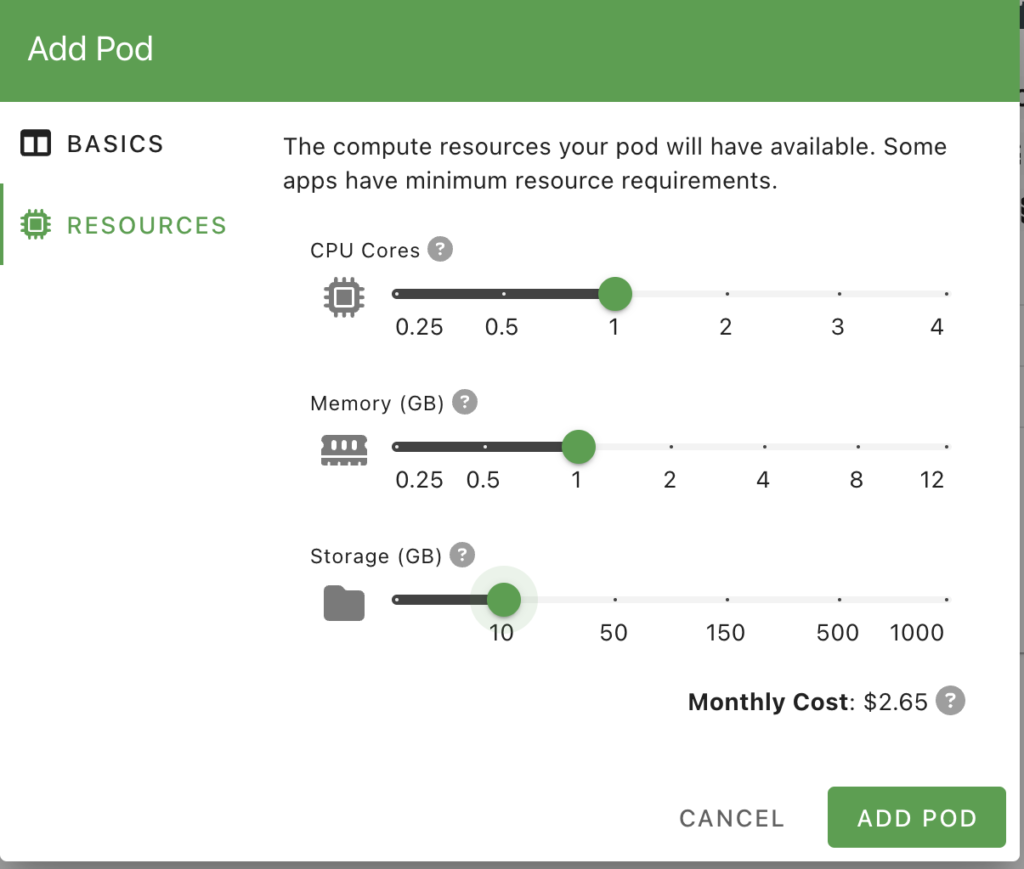
After provisioning, note the section in orange:
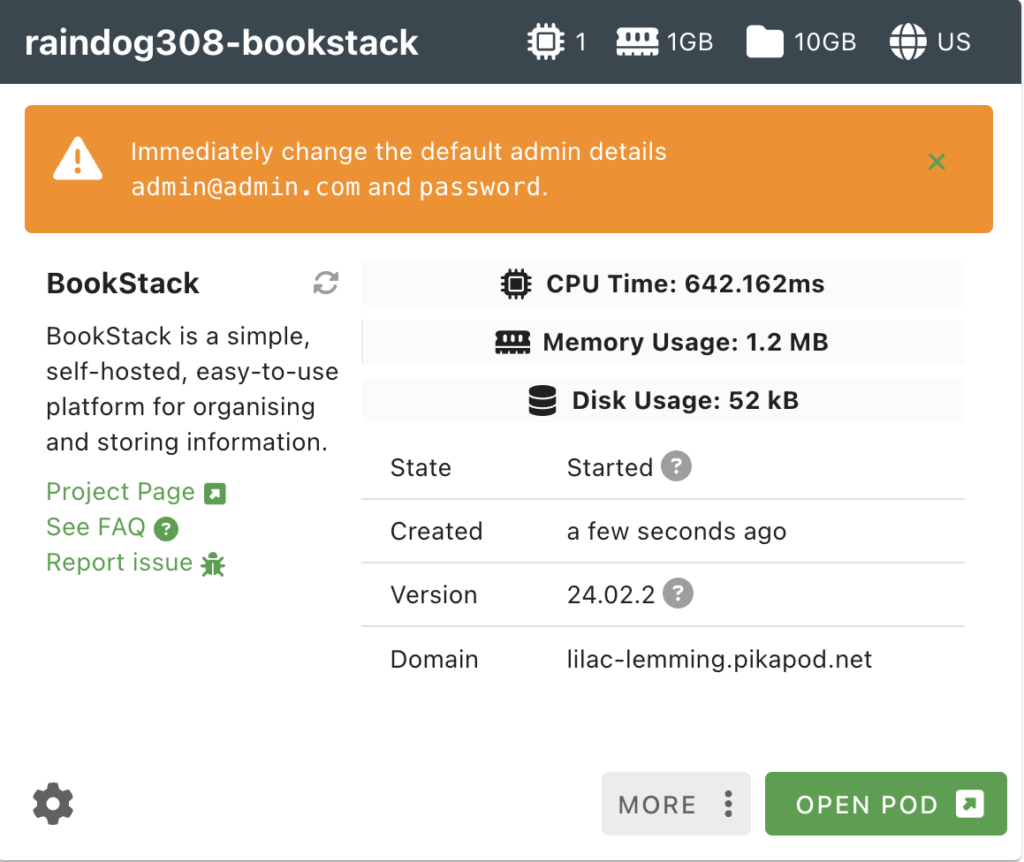
Not all apps support the slick “set an env var” method of configuration, so sometimes you have to login to the apps to set them up. In this case, I logged in immediately and set the admin login and password. Here’s how it looks out the box:

And after adding a couple books:
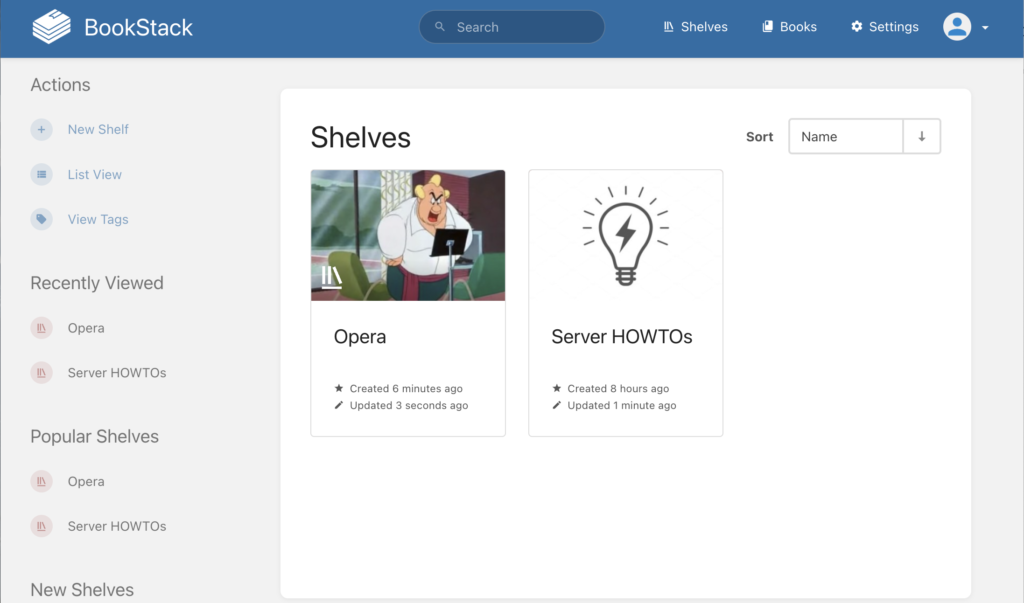
Summary
These are only two examples out of nearly 80 apps available on PikaPods. And more are coming!
For me, this service hits a sweet spot. The convenience and “just works” factor is very big, and yet it’s still very cheap. It’s also awesome if you want to try out something without going through the labor of setting it up yourself. For some things, I don’t want to provision a VM and maintain the Docker setup, etc. so spinning up apps on PikaPods is perfect.
If you’ve never spun up a Pod on PikaPods, try it out today!























Leave a Reply